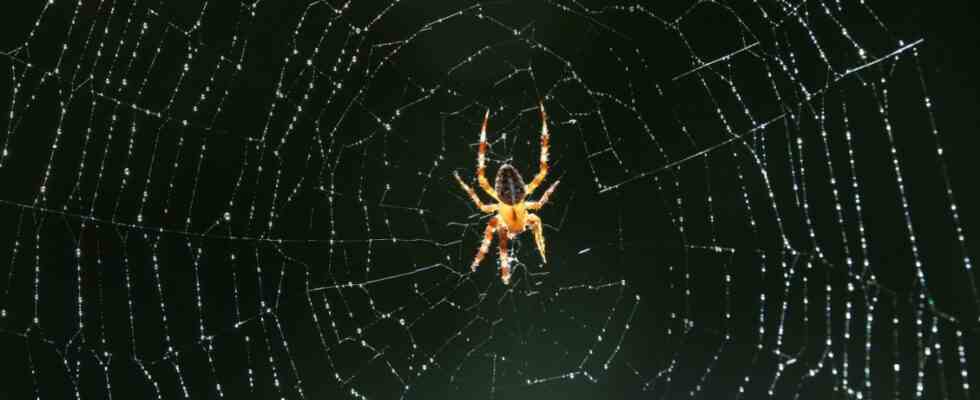The tradition of poet pastors in German literature ranges from Paul Gerhard through Johann Peter Hebe to Eduard Mörike. Christian Lehnert, born in Dresden in 1969, is a hymnic nature poet in this tradition, even if after studying Protestant theology, oriental studies and religious studies he does not work as a pastor but as head of the Institute for Liturgical Studies at the University of Leipzig. Poetry is a special kind of worship for him. He writes “Soli Deo Gloria” in the preface to his new volume of poetry. As was once customary in Baroque literature, he explains at this point what this “natural book” is about: “Of plants and animals / microbes and stones in their appearance / of their names / similarities / healing power and their breath”.
Those who name their eighth volume of poetry “opus 8. Im Brachtwerk” are undoubtedly acting with great awareness of their work. “Opus 8” is also an indication that it is not just about poetry, but about a musical structure. In fact, the volume is composed in an extremely strict manner. The seven sections – like the seven days of creation – each include seven pairs of poems. On the left page of the book there is almost always a two-liner, on the right a poem consisting of eight verses, sometimes compact, sometimes divided into stanzas, but always rhyming.
Poetry as a kind of worship: the poet Christian Lehnert.
(Photo: Lukas Schulze/picture alliance/dpa)
The lines are additionally divided by slashes, which look like bar lines on a sheet of music. The structure put together in this way is reminiscent of Bach’s “Well-Tempered Clavier”, only that Christian Lehnert does not lead his preludes and fugues through all keys, but through the diversity of life. This ranges from the eel to the amoeba to the amethyst, from the harrier to the winter forest to the ryegrass, while varying a large, all-connecting theme: growth and decay or, as it says at the beginning: “becoming in the process of extinction”.
A quote introduces each of the seven sections. With Meister Eckhart, Jakob Böhme, Johann Georg Hamann and the Book of Zohar from the Jewish Kabbalah, Lehnert places himself in the tradition of the mystics, with whom he shares the search for the sacred, but which he cannot find in any kind of transcendent hopes, but in nature, which is named, described and thus created in the first place. Already in Genesis the moment of naming belongs to the act of creation: God creates, but man gives the animals their names. Lehnert does so with amazement and great modesty. His poems are musical-linguistic acts of creation and at the same time praise of the divine order.
The animals and plants are completely themselves without knowing anything about it. Somewhere within them, a memory pulses that leads them to what they are meant to be. Only poetry gives them an awareness. The language is nothing strange, but comes from the objects, is only taken up by the poet, as in the poem about the hazelnut: “She thinks and she desires / she stands in the wind // And hangs concepts in the winter sun. // They detach from her / the little rolls are // a full universe / coagulated in it // what she saw. In the snowy nights she was blind // in the bare / spun into random shapes. // now she emits pollen / and she receives. // That’s blown towards / where she’s pushing.”
Christian Lehnert: opus 8. In the wickerwork. Suhrkamp, Berlin 2022, 124 pages, 22 euros.
Every living being, every stone, every snowflake stands for itself and yet is part of the whole. The title “In the Flechtwerk” suggests this connection. The underground network of roots of a vitality that connects everyone absorbs everything that makes up nature. There are no higher or lower forms of life and certainly not man as the crown of creation. A lyrical self is only expressed in two or three poems, but it remains a silent observer. The actual I of these poems is the language itself. Then the firefly can also say “I” or the garden spider: “I am the fast run / am warm as flies / a ball // made of weaving / am the bite / a thread toss into space.”
Life appears in these poems as a dynamic, dialectic process in which the inevitable decay and extinction is already inherent in the process of becoming. This is what it says about the seed capsule of the hollyhock: “Time rests in a bowl / separated from it // A distant flow of flowers / the year / that it does not know”. Lehnert’s piety is his poetic expressiveness. His poems are chorales that celebrate life in all its manifestations. Despite the strict shape, they appear plain and simple and are therefore beautiful.

